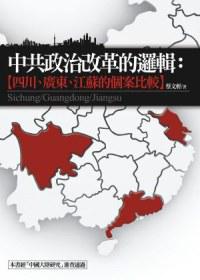-

Chinese Politics in the Era of Xi Jinping
Renowned for his coverage of China's elite politics and leadership transitions, veteran Sinologist Willy Lam has produced the first book-length study in English of the rise of Xi Jinping--General Secretary of the Chinese Communist Party (CCP) since November 2012. With rare insight, Lam describes Xi's personal history and his fascination with quasi-Maoist values, the factional politics through which he ascended, the configuration of power of the Fifth-Generation leadership, and the country's likely future directions under the charismatic "princeling." Despite an undistinguished career as a provincial administrator, Xi has rapidly amassed more power than his predecessors. He has overawed his rivals and shaken up the party-state hierarchy by launching large-scale anti-corruption and rectification campaigns. With a strong power base in the People's Liberation Army and a vision of China as an "awakening lion," Xi has been flexing China's military muscle in sovereignty rows with countries including Japan, Vietnam, and the Philippines while trying to undermine the influence of the United States in the Asia-Pacific region. While Xi is still fine-tuning his art of governance, his zero tolerance for dissent and his preoccupation with upholding the privileges of the "red aristocracy" and the CCP's status as "perennial ruling party" do not bode well for economic, political, or cultural reforms. Lam takes a close look at Xi's ideological and political profile and considers how his conservative outlook might shape what the new strongman calls "the Great Renaissance of the Chinese race." -

当代中国政治
编辑推荐 唐亮编著的《当代中国政治--对中国特色的现代化发展模式的新解读》共分六章分别是:第一章论述“一党领导体制下现代化模式的转换”。第二章论述“国家制度的结构与变化”。第三章论述“现代化第二阶段发展战略的调整”。第四章论述“自上而下的政治改革”。第五章论述“经济发展和民主政治建设”。第六章按转型成本的高低将形成民主化第三次浪潮的国家分成软着陆和硬着陆两大类,从民主化的软着陆与民主政治的成熟需要高度发展的经济社会为条件这个角度出发,指出第二阶段的成败得失将对中国民主化能否实现软着陆,民主政治能否走向成熟产生决定性的影响。 内容提要 唐亮编著的《当代中国政治--对中国特色的现代化发展模式的新解读》是一位海外华人学者,以国际眼光,从比较政治学的视角,运用比较研究的方法,对当代中国的民主政治及现代化发展模式所作的新解读。《当代中国政治--对中国特色的现代化发展模式的新解读》从以下几个角度具体地考察中国现代化的进程,分析探讨中国政治的结构性变动以及引起这些变动的机制。第一,从功能性的角度具体地考察一党领导体制在推进现代化进程中的有效性。第二,从“现代化三个阶段论”出发,分析和考察现代化第二阶段中国社会面临的结构性难题、经济社会发展战略的调整以及政治改革战略的特色。第三,从“民主化三个阶段论”出发考察中国在民主化基础建设方面所取得的进展,分析和展望中国民主化的前景。从中,读者可以清晰地看到一条经济发展优先,逐步培育比较成熟的公民社会,进而实现民主化的软着陆的中国特色的民主政治与现代化发展之路。 -

中共政治改革的邏輯
本書所關注的問題非常簡單:為什麼在中共中央有一套既定的法規與政策下,中國大陸的省份,其政治改革的模式與幅度不盡相同?整體而言,本書是在回答兩個問題。第一,為何省級的政改模式不同?第二,為何省級的政改力度不同?對於第一個問題,筆者提出「政績」的解釋。各地經濟發展狀況的不同,使得省委書記相繼追求「和諧社會」(社會維穩)或「小康社會」(經濟發展)的政績。人事制度改革有助於前者的完成,行政體制改革和後者有關。本書分別以「基層首長選制」與「行政三分制」,做為兩種改革的探討指標。第二個問題,筆者以「派系」來解釋。若最高領導人和省委書記之間,存在著派系關係,則由於省委書記發動改革的政治風險較低,因此該省才可能出現大規模的政治改革。 -

The People's Congresses and Governance in China
-

Tying the Autocrat's Hands
Under what conditions would authoritarian rulers be interested in the rule of law? What type of rule of law exists in authoritarian regimes? How do authoritarian rulers promote the rule of law without threatening their grip on power? Tying the Autocrat's Hands answers these questions by examining legal reforms in China. Yuhua Wang develops a demand-side theory arguing that authoritarian rulers will respect the rule of law when they need the cooperation of organized interest groups that control valuable and mobile assets but are not politically connected. He also defines the rule of law that exists in authoritarian regimes as a partial form of the rule of law, in which judicial fairness is respected in the commercial realm but not in the political realm. Tying the Autocrat's Hands demonstrates that the rule of law is better enforced in regions with a large number of foreign investors but less so in regions heavily invested in by Chinese investors. -

Corruption by Design